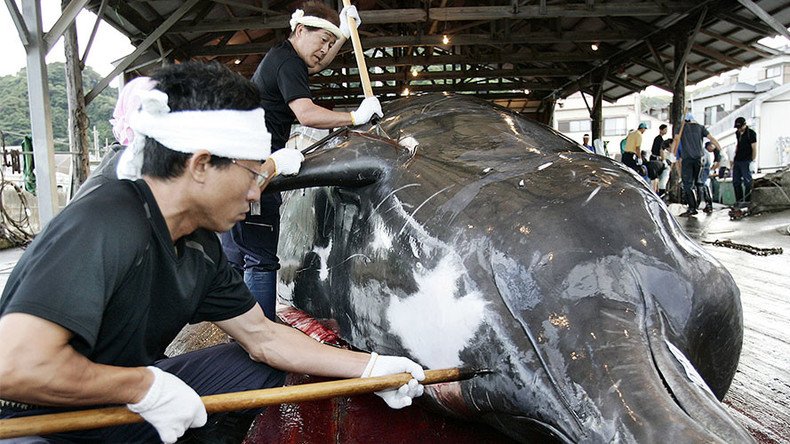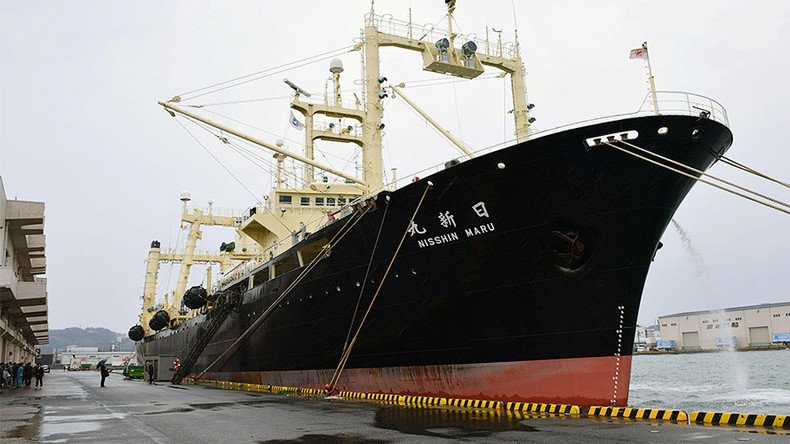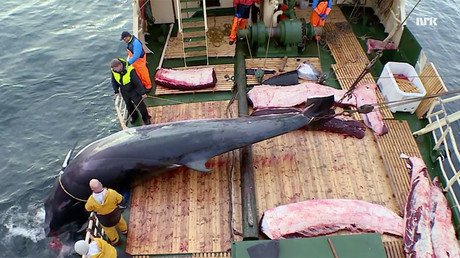Japan kills 333 whales for 'research purposes' despite intl criticism

A Japanese fleet has returned to port with the carcasses of 333 minke whales which were harpooned in the Antarctic Ocean, despite an international ban on commercial whale hunting and appeals from animal rights groups.
The 8,145-ton Nisshin Maru – the only whaling factory ship in the world – and two catcher vessels arrived at the whaling community port of Shimonoseki, southwest Japan, on Friday. The ships were the last of a five-vessel fleet.
The country's Fisheries Agency confirmed the fleet had carried out its four-month mission to conduct "research for the purpose of studying the ecological system in the Antarctic Ocean," reaching its stated goal of killing 333 whales.
"It was great that we have achieved our plan. We will steadily continue our research toward a resumption of commercial whaling," Shigeto Hase, a Fisheries Agency official, said at a homecoming ceremony attended by some 200 people.
Tokyo's claim that the annual expedition is undertaken for research purposes allows it to circumvent the International Whaling Commission's 1986 ban on commercial hunting, to which Japan is a signatory. Research whaling is allowed as an exception.

However, rights groups say the yearly practice is nothing more than a commercial whaling venture, noting that the meat is later sold in supermarkets.
The executive vice president of Humane Society International, Kitty Block, called the expedition an "obscene cruelty in the name of science that must end" in a statement.
She went on to state that there is "no robust scientific case for slaughtering whales," adding that "commercial whaling in this or any other guise does not meet any pressing human needs and should be relegated to the annals of history."
The US Congress is preparing a resolution calling for an end to Japanese whaling, which will state that there is no humane way to kill whales and that existing methods – most notably a harpoon that explodes inside the mammal – cause tremendous suffering.
The European Union has also spoken out against the practice, with all member states signing a formal statement of concern in January.
The International Court of Justice also expressed disapproval for the practice in 2014, ruling that the program should end because it wasn't as scientific as Tokyo claimed.
Although Japan suspended its 2014 hunt to revise its strategy, it resumed it for the 2015-2016 season. Upon renewal of the program, Tokyo had reduced the number of whales and species targeted.
Japan has said it aims to kill nearly 4,000 whales over the next 12 years as part of its research program and has previously stated that its ultimate goal is the resumption of commercial whaling, according to Reuters.
Japan has a long history of hunting whales, using them as a source of protein and a cheaper alternative to other meats.













